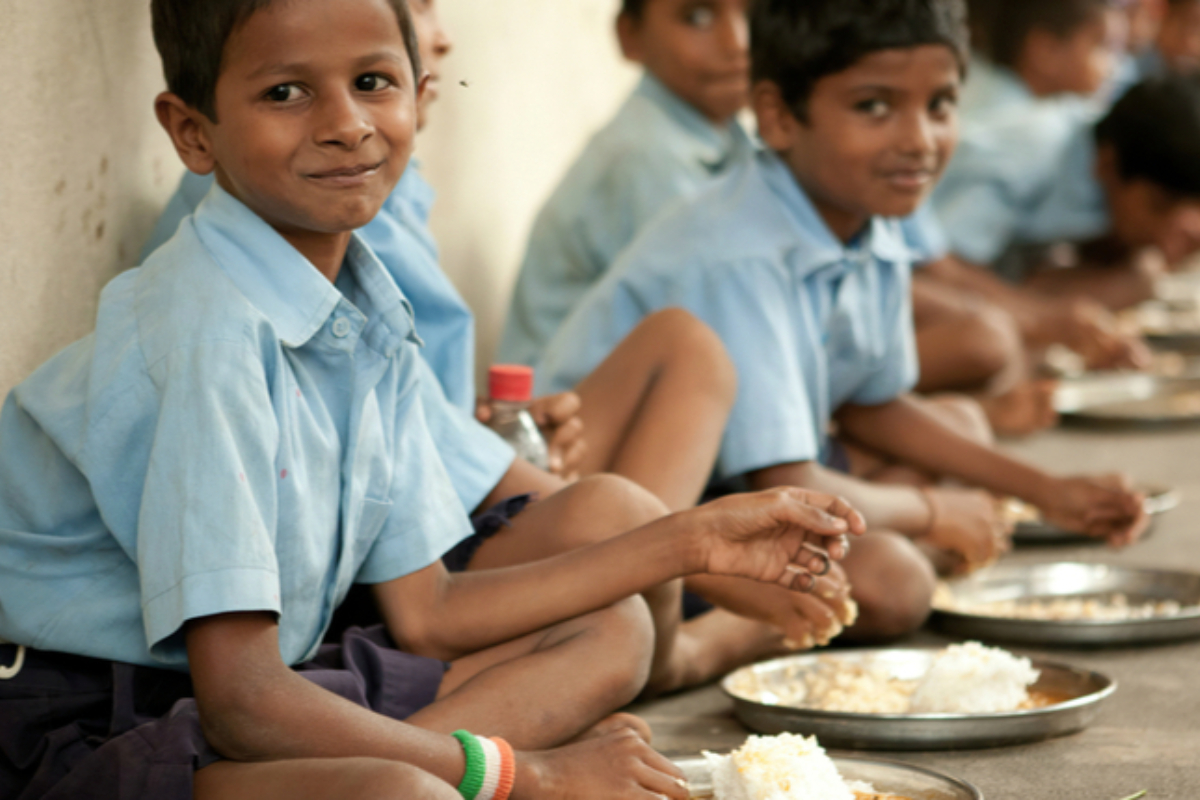The ongoing tussle between the Bharatiya Janata Party (BJP)-led central government and the Trinamool Congress (TMC)-led West Bengal government added another chapter.
A panel appointed by the Ministry of Education has found that around 16 crore midday meals served, worth over ₹100 crores, were actually over-reported by the local administration in West Bengal from April to September last year.
The Ministry of Education had constituted the Joint Review Mission (JRM) to review the implementation of the centrally sponsored scheme PM POSHAN in West Bengal following complaints of irregularities. The 13th Joint Review Mission (JRM) visited West Bengal from January 30 to February 6 this year.
According to the first and second Quarterly Progress Reports (QPRs), submitted to the Government of India by the state government, about 140.25 crore meals had been served under the PM POSHAN scheme from April to September 2022.
However, as per the QPRs submitted by the districts to the state, the number of meals served was about 124.22 crore.
According to the JRM report, the state used to claim that more than 95 per cent of children availed themselves of midday meals on an average basis. However, in all the schools visited, the number of children availing themselves of these meals ranged from 60 to 85 per cent during the period.
During the visit, it was seen that in 70 per cent of the visited schools, less rice was cooked than in the prescribed quantities. In 60 per cent of the visited schools, less dal was cooked than the prescribed quantities.
In 47 per cent of the visited schools, the amount of oil used was less than the prescribed quantities and in 27 per cent of the visited schools, the amount of cooked vegetables was less than the prescribed quantities.
It has also been reported that these funds were credited back to the PM POSHAN funds on March 28, 2022, by the appropriate head of the state government. However, no supporting documents have been provided validating the said transactions.
Reacting to the JRM report, Union MoS for Education and MP from Bankura, Subhas Sarkar, said, “JRM report on PM POSHAN shows that the state government has misappropriated ₹100 crore within the six-month budget.”
“The state government has reported 140 crore meals to the centre, whereas the state has received a report of 124 crore midday meals from the districts. Considering the consumption of the midday meal, the state has reported 95 per cent of children were present every day, but during the visit, it was observed that 60 to 85 per cent were actually present,” Sarkar pointed out.
It was also found that the body mass index of the children was very low, which means the students are undernourished and anaemic, says the minister.
Alleging diversion of funds, the Member of Parliament from Bankura alleged, “PM POSHAN fund in Birbhum has been diverted to the Bogtui fire incident through the dust disaster fund.”
West Bengal education minister Bratya Basu hits back at the findings of the report, alleging that the views of the state government were not taken into account while preparing the report.
“Our primary response to this report is that the JRM has submitted it without the signature of the Project Director, State Cooked Midday Meal Scheme, who was the representative of the State Government. What, therefore, is the ‘Joint’ in the Joint Review Committee, if the report is not even shared with him for his opinion or views,” Basu questioned.
“It is clear that the views of the state have not been taken into account. We have already written a letter of protest to the Chairman of the JRM, to which we have not received any response as yet. Why is this ‘hide and seek’ play, if there is no mala fide intent of the central government?” Basu added.
Citing the Comptroller and Auditor General of India (CAG) audit, Basu said, “CAG has conducted an audit till 21 and 22, but we have not received any feedback from them. We shall send our comments with the details, even if we do not receive a reply from either the central government or the Chairperson of the JRM, on the non-circulation of the draft report or sending the same without the signature of the state representative.”

